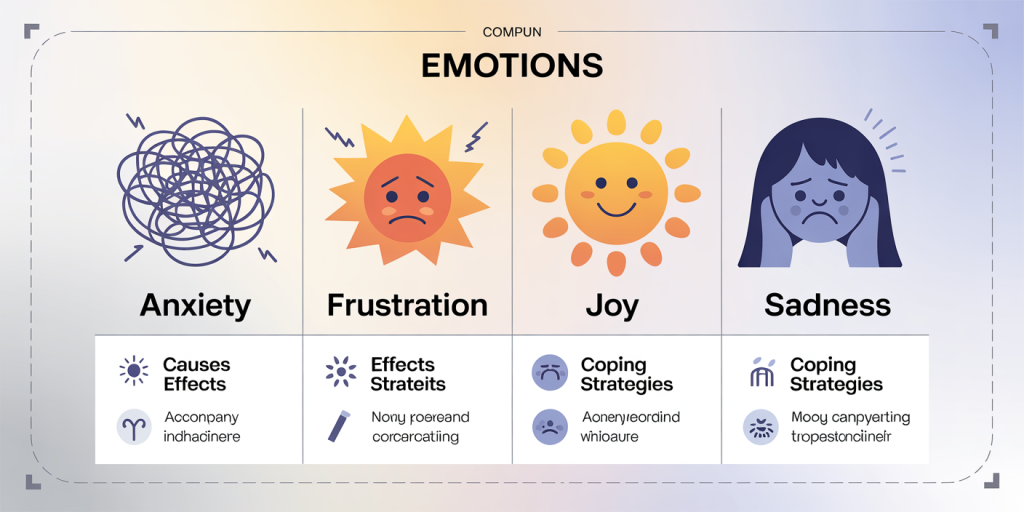Level Up Your Self-Awareness: 5 Deep Questions to Ask Yourself Weekly
In today’s fast-paced world, maintaining a high level of self-awareness is crucial for both personal and professional growth. Self-awareness, the ability to recognize and understand your emotions, thoughts, and behaviors, enables more effective decision-making, improves relationships, and fosters emotional intelligence. However, self-awareness isn’t a one-time achievement—it requires regular reflection and deliberate questioning. To support this ongoing process, asking yourself deep and meaningful questions weekly can serve as powerful catalysts for growth.

Research by psychologists, including Dr. Tasha Eurich, reveals that self-aware people are more successful at work and have healthier relationships. According to Eurich’s studies, only about 10-15% of people are truly self-aware, highlighting the importance of actively nurturing this skill. This article explores five thought-provoking questions to ask yourself weekly, backed by practical examples and data, which can transform your self-awareness and accelerate personal development.
The Power of Reflection: Why Deep Questions Matter
Reflection is the cornerstone of self-awareness. When you pause to think about your experiences, decisions, and feelings, you gain critical insights that help you grow. Deep questions act as mirrors, prompting honest self-examination beyond surface-level thoughts. Unlike routine self-assessments or casual journaling, probing questions help uncover underlying motivations, emotional triggers, and patterns in behavior.
For instance, consider Sarah, a mid-level manager who struggled with recurring conflicts in her team. By regularly asking herself, “What role am I playing in these conflicts?” she realized her tendency to micromanage was exacerbating tensions. Through this awareness, Sarah adjusted her leadership style, resulting in a 30% improvement in team satisfaction scores reported in subsequent employee surveys. Her example embodies how meaningful self-questioning drives real change.
Anúncios
Studies from the Harvard Business Review confirm that consistent reflection combined with coaching leads to a 25-30% improvement in leadership effectiveness. Therefore, embedding deep self-inquiry into your weekly routine is not merely introspective—it’s a practical, evidence-backed approach to enhancing your capabilities and well-being.
Question 1: “What Emotions Dominated My Week and Why?”
Identifying dominant emotions sheds light on your internal climate and decision-making patterns. Emotions influence perception, focus, and behavior, often more than we realize. Acknowledging what you felt during the week creates a foundation for emotional regulation—a key facet of emotional intelligence, linked to higher job performance and life satisfaction.
Take the example of David, an entrepreneur who felt consistently anxious over missed deadlines. Asking this question weekly allowed him to pinpoint triggers: unclear communication with his team and unrealistic workload expectations. Addressing these factors reduced his anxiety by 40%, as measured by standardized stress level surveys.
Here is a comparative table demonstrating common emotions and their potential causes:
Anúncios

| Dominant Emotion | Possible Causes | Potential Effects | Strategies to Address |
|---|---|---|---|
| Anxiety | Overwhelm, uncertainty, lack of control | Reduced focus, burnout | Time management, clear goals |
| Frustration | Obstacles, unmet expectations | Anger, decreased patience | Mindfulness, problem-solving |
| Joy | Achievement, positive relationships | Improved motivation, energy | Celebrate wins, strengthen bonds |
| Sadness | Loss, disappointment | Withdrawal, low energy | Seek support, self-care |
By regularly reflecting on emotional experiences, you enhance your ability to respond rather than react impulsively, fostering resilience and mental clarity.
Question 2: “What Limiting Beliefs Were Holding Me Back?”
Limiting beliefs are unconscious convictions that restrict your potential—such as “I’m not good enough” or “Failure is unacceptable.” Identifying and challenging these beliefs is fundamental for progress but often overlooked.
Jenna, a graphic designer, frequently hesitated to pitch bold ideas fearing rejection. Asking herself this question weekly, she uncovered the limiting belief that “clients won’t accept my creativity.” With this insight, she consciously reframed her mindset and reported a 50% increase in successful project proposals over three months.
Data from Cognitive Behavioral Therapy (CBT) research estimate that up to 70% of mental blocks and stress stem from negative self-beliefs. A practical method to dismantle them involves cognitive restructuring:
1. Identify the belief. 2. Examine evidence for and against it. 3. Replace with a balanced, constructive belief.
The following table presents examples of common limiting beliefs and positive alternatives:
| Limiting Belief | Positive Reframe |
|---|---|
| “I’m not qualified enough.” | “I have unique skills and can learn more.” |
| “I will never succeed at this.” | “Challenges are opportunities to grow.” |
| “I must avoid failure at all costs.” | “Failing is part of the learning process.” |
Regular reflection on these beliefs primes your mindset for opportunity and growth instead of fear and stagnation.
Question 3: “How Did I Contribute to Others’ Lives This Week?”
Self-awareness isn’t solely about internal perceptions; it also involves understanding your impact on others. Considering your contribution helps cultivate empathy and a sense of social responsibility.
For example, Michael, a sales executive, began journaling about his interactions weekly, asking how he had positively influenced colleagues or clients. This habit revealed he was often too task-focused, missing moments for meaningful connection. After adjusting his approach to include active listening, client retention rates rose by 20%, affirming the value of relational awareness.
Research shows that prosocial behavior, like offering help or constructive feedback, enhances workplace morale and broadens professional networks. Additionally, acts of kindness correlate with improved mental health. Reflecting on your contributions encourages ongoing generosity and strengthens interpersonal bonds, critical ingredients for success and happiness.
Question 4: “What Did I Learn from Successes and Failures?”
Growth emerges from lessons gleaned by reflecting on outcomes, both positive and negative. Yet many people only focus on achievements or shy away from scrutinizing failures, missing out on their educational potential.
Consider Rachel, who tracks weekly wins and setbacks in her blog business. When a product launch failed, rather than feeling defeated, she evaluated marketing gaps and customer feedback. This led to strategic changes that boosted revenue by 35% the next quarter.
A study from the Journal of Applied Psychology emphasizes that learning from mistakes promotes adaptive expertise and innovation. The key lies in objective reflection: What went well and why? What did not go as planned? What would I do differently next time?
An effective comparative analysis could look like this:
| Aspect | Success Example | Failure Example | Lesson Learned |
|---|---|---|---|
| Planning | Clear milestones, team buy-in | Unclear goals, rushed execution | Detailed planning prevents issues |
| Communication | Regular updates, feedback loops | Information silos, assumptions | Transparent communication is vital |
| Risk Management | Contingency plans in place | Ignored warning signs | Anticipate and prepare for risks |
Weekly engagement with this question builds a continuous improvement mindset essential for sustained growth.
Question 5: “What Small Action Can I Take Next Week to Improve Myself?”
Setting incremental goals rooted in self-reflection bridges insight with action. While awareness is valuable, translating it into tangible steps ensures momentum.

Maria, a teacher aiming to improve classroom engagement, used this weekly question to commit to one small change, such as incorporating group discussions or revising lesson plans. Over six months, student participation increased by 25%, illustrating how focused, manageable actions compound over time.
Behavioral science supports this approach. According to a 2020 study published in *Nature Human Behaviour*, small changes in habits, when consistently performed, can lead to significant long-term transformations. The “1% improvement” philosophy suggests that continuous minor adjustments surpass sporadic major efforts in effectiveness.
To organize your actions efficiently, consider the following framework:
| Goal Area | Small Action Example | Expected Outcome | Time Commitment |
|---|---|---|---|
| Health | Add a 10-minute daily walk | Improved fitness, reduced stress | 10 minutes daily |
| Career | Reach out to one mentor/peer weekly | Enhanced network, accountability | 15 minutes weekly |
| Emotional Well-being | Practice daily gratitude journaling | Increased positivity, resilience | 5 minutes daily |
This practical, action-oriented reflection drives self-awareness into real-world improvements.
Envisioning the Future: Sustaining Growth Through Self-Awareness
The ongoing cultivation of self-awareness through weekly questioning holds promising future benefits, especially as emotional intelligence gains increasing importance in diverse fields such as leadership, education, and healthcare. Digital platforms are emerging that facilitate guided reflections, using AI to customize questions based on personal data and habits, potentially revolutionizing how we engage in self-assessment.
Moreover, as workplaces become more remote and socially distanced, the ability to self-monitor emotions, mental health, and interpersonal dynamics independently becomes critical. Establishing a weekly regimen of deep inquiry cultivates autonomy and emotional agility, equipping individuals to navigate evolving professional and social landscapes adeptly.
Looking ahead, the integration of reflective practices within organizational cultures can enhance employee engagement and innovation. For instance, companies like Google and Microsoft emphasize mindfulness and self-awareness programs, reporting improvements in productivity and employee satisfaction. The synthesis of personal insight and organizational support could redefine standards of work-life balance and success.
Ultimately, mastering self-awareness through the discipline of asking profound weekly questions is not an endpoint but a continuous journey. It aligns the inner compass with external realities, fostering a balanced, purposeful, and fulfilling life.
